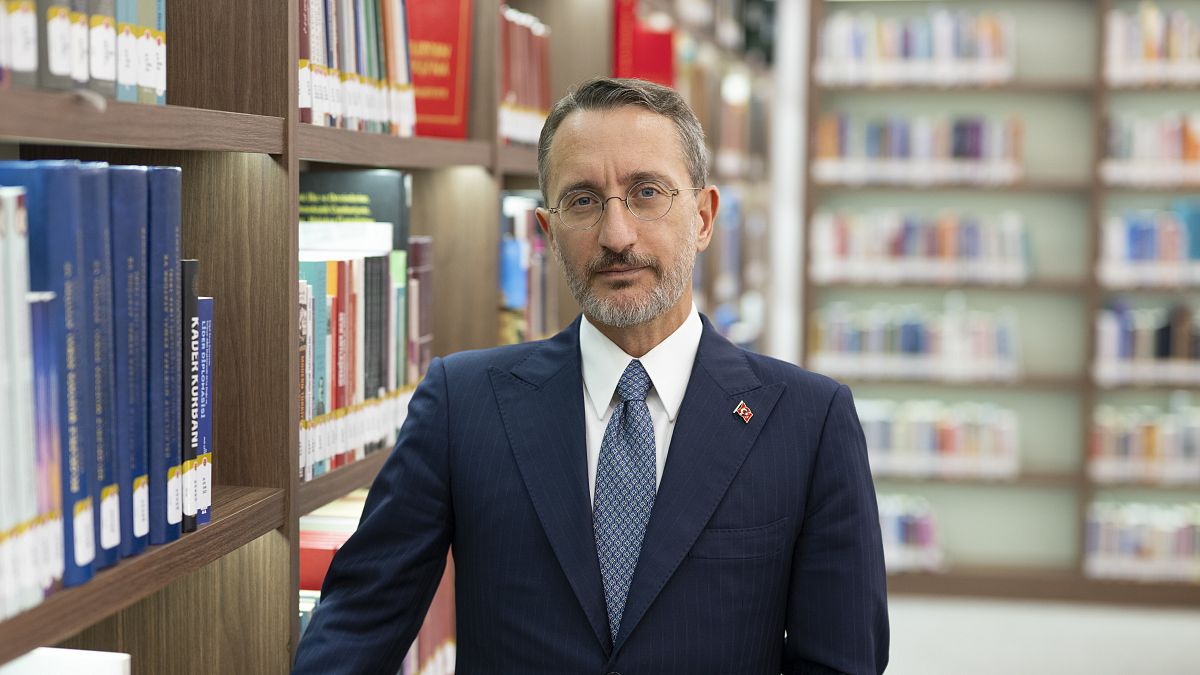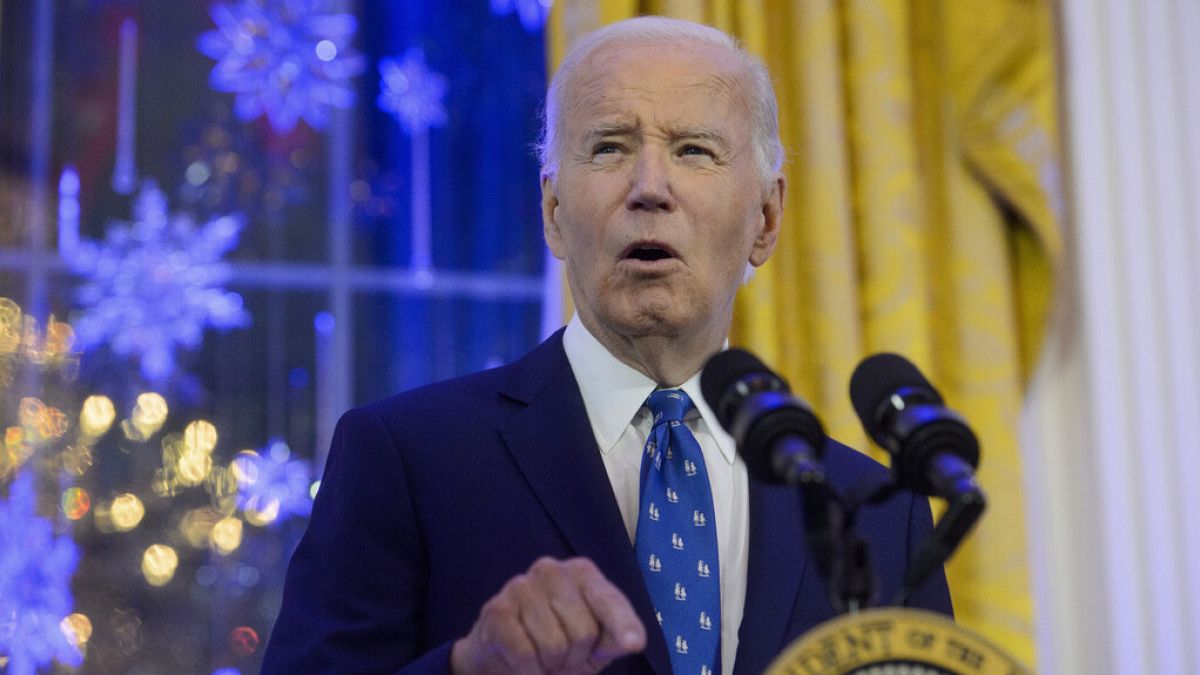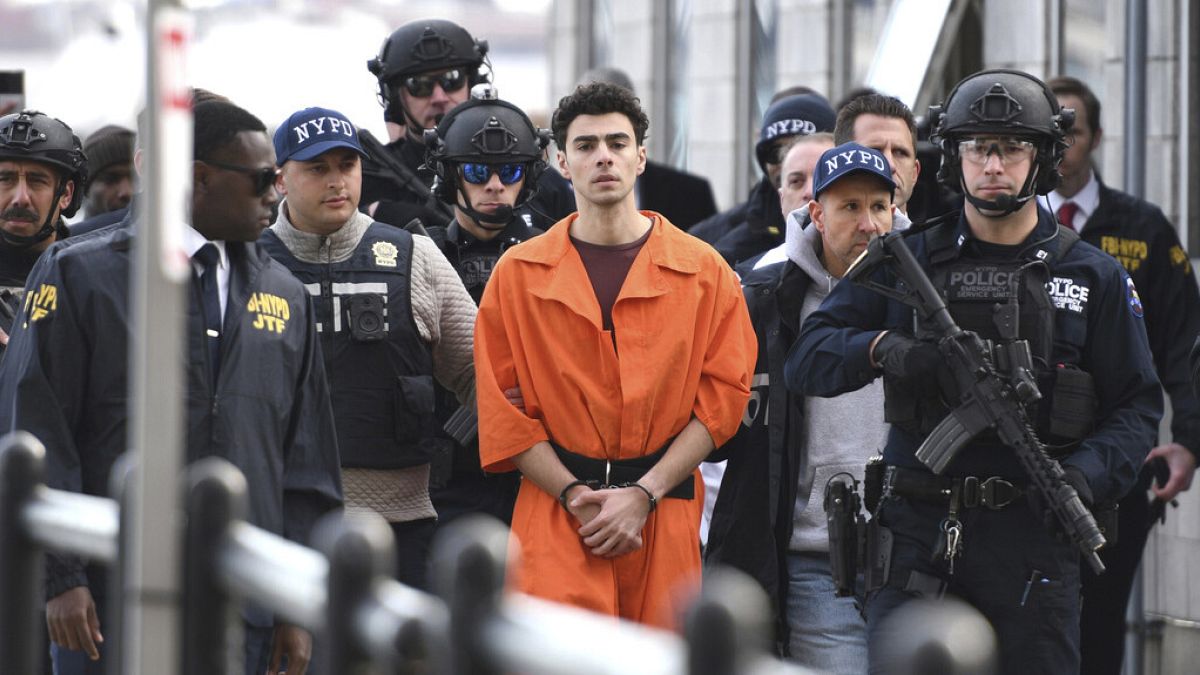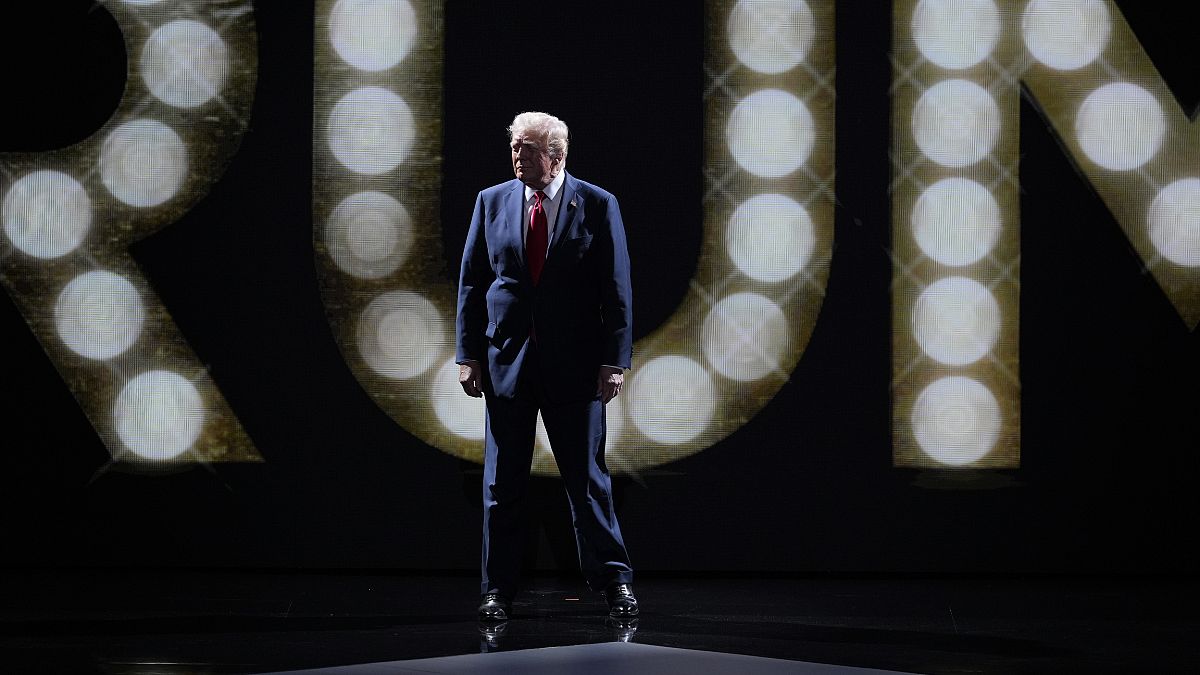Who could be in Kamala Harris’ Cabinet? Here are the leading contenders.
If Kamala Harris wins the election, she will likely approach the task of filling out her Cabinet and West Wing much like she did when she took over Joe Biden’s campaign operation this summer. While she’ll ensure her closest advisers and key Cabinet members are people she personally trusts, there will be some continuity with […]

If Kamala Harris wins the election, she will likely approach the task of filling out her Cabinet and West Wing much like she did when she took over Joe Biden’s campaign operation this summer.
While she’ll ensure her closest advisers and key Cabinet members are people she personally trusts, there will be some continuity with the current administration, according to five people familiar with ongoing conversations granted anonymity to speak candidly about the transition process. And regardless of whether Democrats keep their narrow hold of the Senate or Republicans take control, Harris will have to game out how much of Biden’s Cabinet she can hold over.
Harris has tasked Yohannes Abraham, who led the Biden-Harris transition four years ago, with guiding hers. But unlike the president, who brought a small cadre of aides into the West Wing who’d been part of his inner circle for decades, Harris doesn’t have a long career in Washington. In filling out her vice presidential office and revamping Biden’s campaign, she has leaned on a small group of trusted aides for advice as well as top operatives from across the party, many of them veterans of Barack Obama’s campaign network. And after four years as vice president, dozens of former Harris staffers are scattered around Washington, enmeshed at other executive branch agencies and on Capitol Hill.
As with most modern Democratic transitions, Harris and her team will seek to send a message with her choices by ensuring that a future Cabinet demonstrates her commitment to diversity — racially, geographically and politically. She’s promised that one difference between her and Biden would be that she’d appoint at least one Republican to her Cabinet.
This is POLITICO’s snapshot of the leading contenders for Harris’ top jobs.
Secretary of State
For Harris, who hasn’t yet fully distinguished her foreign policy agenda from Biden’s, the choice of top diplomat will suggest whether she’s going for four more years of Biden, or something entirely new.
If elected, the decision will come at a critical time, as Harris tries to navigate the crisis in the Middle East, Russia’s aggression in Europe and China’s efforts to extend its influence globally. Her secretary of State would play a key part in her attempt to balance support for Israel with the mounting pressure from within her own party to take action to ensure better protections for civilians in Gaza and Lebanon.
More than perhaps any other Cabinet member, the secretary of State has the biggest chance to make his or her mark on world history — for better or worse. Colin Powell delivered a famous U.N. address on Iraq’s purported weapons of mass destruction program before the Iraq war that permanently tarnished his legacy. John Kerry negotiated the Iran nuclear deal under Barack Obama, which former President Donald Trump abandoned. And then there was Mike Pompeo, who secretly flew to North Korea to lay the groundwork for Trump and Kim Jong Un’s high-profile nuclear talks (though these talks later fell apart).
Treasury Secretary
Any Treasury secretary pick by Harris would be an early signal of the extent to which she’ll pursue support from corporate America or seek to placate the progressive wing of her party — one deeply skeptical of big business.
On the campaign trail, Harris vowed to crack down on businesses that engage in wrongdoing, leaning on her experience pursuing banks and other companies as California attorney general. At the same time, she made concerted outreach to business leaders, declaring, “I am a capitalist” and pitching herself as a “practical” and “pragmatic” steward of the economy.
Harris has made growing the middle class a centerpiece of her economic platform. She’s called for tax breaks for families, first-time homebuyers, and small businesses. Her plans also include incentives to boost the housing supply and bolster American manufacturing.
Many of those ideas will enjoy broad support among Democrats. But a Harris Treasury secretary would also have to navigate intraparty divides on other issues, such as financial regulation. On crypto, for example, Harris has signaled she’d take a friendlier approach to the industry than Biden-era regulators.
The next secretary will steer the administration through key fiscal battles set to dominate Washington in the coming year. That includes a looming debt ceiling fight and negotiations over a major tax deal to address the expiration of the 2017 Republican tax law.
Defense Secretary
So far, Harris has revealed few details of what her defense policies might entail. But no matter who she favors for secretary of Defense — the president’s top civilian adviser when it comes to military matters and the department’s two million-plus employees — she’s unlikely to usher in a major departure from Biden. If elected, she’ll be confronted with the multiple flare-ups that took place during her boss’s tenure.
Harris’ Pentagon is likely to continue some of the major pillars pursued by Donald Trump and Biden, such as boosting research and development, building out the Space Force and rapidly fielding innovative technology. While the Pentagon budget isn’t likely to go down on her watch, a Democratic administration will probably pair hikes in defense spending with domestic programs.
As usual, there have been plenty of senators and representatives who are high on the rumored lists of contenders. But plucking lawmakers from a Congress with such narrow margins could be risky getting Harris’ appointee confirmed.
Attorney General
If Harris wins, it won’t be her first time overseeing a justice department, having twice been elected as California’s attorney general. And while touting her record in that position in her campaign stump speech, she has not-so-subtly foreshadowed what she might want the U.S. Department of Justice to prioritize.
Think consumer protection, drug cartels, and gender-based violence. Harris regularly cites her work negotiating a settlement with banks linked to the 2008 housing crisis – describing her decision to scuttle a nearly-finalized proposal and win more money for Californians. She also highlights her work prosecuting drug traffickers and combating sex crimes.
One of the biggest questions if Harris is elected will be what she does with the powerful Antitrust Division, which can move to block mergers deemed monopolistic. The Biden administration amped up antitrust enforcement, and Wall Street and K Street are keenly interested to see if Harris will continue that focus.
Her attorney general will inherit a bevy of politically electric prosecutions, including the cases against New York City Mayor Eric Adams and — of course — Donald Trump. The department also has a hand in judicial nominations, pardons, counter-espionage, surveillance, and police oversight. And it’s not a job with much appeal for ascendant politicians. Attorneys general regularly face no-win dilemmas and congressional crosshairs, and nobody who has held the job in this century has gone on to higher political office.
Interior Secretary
Though relatively low profile as Cabinet posts go, her pick for Interior secretary will offer a clue into Harris’ commitment to renewable energy and what kind of relationship the federal government will have with Native American tribes.
The agency is also a regulator that sets safety standards for offshore oil rigs and responds to wildfires.
Energy output on Interior-managed lands has climbed under Biden. But the department has also introduced new rules that raise the cost of producing fossil fuels while limiting the area available to drilling.
The department has also made strides in bringing more solar and wind production to federal land. Expect Harris, if elected, to try to continue to boost renewables and keep the hurdles in place on fossil fuel production.
Agriculture Secretary
Agriculture secretaries under Democratic presidents in the past several decades have wielded an unusual amount of power over the country’s food supply and its largest anti-hunger program, which now serves more than 40 million low-income Americans.
Any USDA chief under Harris would likely have wide latitude to continue Biden’s effort to plow billions of federal dollars into rural communities and programs to incentivize farmers to adopt greener practices. They’d also likely pursue ways to expand federal programs to provide food benefits to low-income Americans, after Congress and the Biden administration greatly expanded them during the pandemic and Democrats have.
Commerce Secretary
Harris is likely to continue elevating the Commerce Department from a hodgepodge of departments — from trade enforcement to the census — to a major implementer of U.S. economic statecraft.
Under Biden, Secretary of Commerce Gina Raimondo has expanded the scope and profile of the agency’s work, taking a leading role in shepherding Biden’s CHIPS Act — a key industrial policy initiative — through Congress and overseeing its implementation. She has also taken a larger role in international economic talks, leading negotiations for three of the four sections of its Indo-Pacific Economic Framework, setting new investment networks and voluntary labor and environmental standards for U.S. trading partners in South Asia.
At the same time, Raimondo has has continued to ramp up the agency’s sanction authority, issuing record economic penalties against Russia, China and other U.S. adversaries through the Bureau of Industry and Security. Those efforts are likely to escalate no matter who wins the White House.
Labor Secretary
The Department of Labor under the Biden administration spent the better part of four years unwinding a suite of policies issued under Donald Trump that collectively chipped away at labor unions’ leverage against employers and gave businesses more leeway on how they treated their workforce on everything from independent contractors to overtime pay requirements.
However much of Biden’s labor legacy is tied up in court, particularly in conservative venues stocked with Trump appointees, and high-profile new rules regarding workplace heat safety and training programs remain incomplete. Harris is expected to broadly mirror Biden’s approach to workplace issues.
Acting Labor Secretary Julie Su has proven to be a loyal replacement after Marty Walsh left the administration to lead the NHL Players Association, but she never managed to secure the support needed from Senate Democrats to be confirmed.
As such her time atop DOL could hinge on whether Republicans take back control of the Senate. The GOP would almost certainly vote down Su’s nomination if Harris resubmitted it, and keeping her around in an acting capacity would spark another fight over obscure federal vacancy laws. At the same time Su was strongly backed by Asian American lawmakers and AAPI groups who felt snubbed by Biden’s first round of Cabinet secretary selections. And Harris — as the first president of South Asian descent — would likely want to ensure a diverse Cabinet.
Health and Human Services Secretary
Harris’ record suggests a willingness to build on Biden’s health policy priorities and, in some cases, potentially be more aggressive, including on abortion rights and lowering drug costs.
That could put Biden administration officials in pole position to lead HHS, especially as Biden’s secretary, Xavier Becerra, who is believed to want to run for governor of California, was in discussions to leave the administration before the current president stepped out of the race.
Any Harris pick would almost certainly want to expand access to abortion and in vitro fertilization and expand Medicare drug pricing negotiations. And several potential nominees being floated have been lauded for their ability to work across the aisle.
But the challenge of getting a nominee confirmed by the Senate — possibly one with a Republican majority — could limit her ability to pick a nominee who would be more aggressive on health issues like reproductive rights.
Housing and Urban Development Secretary
Harris, like Donald Trump, has lamented the rising cost of housing while on the campaign trail, pledging to bring down prices by expanding the supply of homes.
She’s called for expanded tax breaks to boost construction, a new innovation fund to induce localities to pare back restrictive zoning and up to $25,000 in down payment assistance for first-time homebuyers. And Harris would rely on HUD to help administer some of those programs if Congress passed them. The Biden administration has repeatedly requested funding increases for the department.
A Harris pick would also be charged with implementing the Affirmatively Furthering Fair Housing rule, a stalled regulation the Biden administration has not yet finalized. The rule would require states and localities to track and address patterns of residential segregation to receive federal funding as part of a broader agenda to narrow the racial wealth gap and increase racial equity.
Transportation Secretary
The Transportation Department, a 55,000-person strong agency that doles out money to states for infrastructure projects and sets regulations to keep automobiles, airplanes and more safe, was super-charged under the Biden administration. The enactment of the 2021 infrastructure law pumped $1.2 trillion into programs under DOT’s remit, including for new initiatives such as one to help states build out charging infrastructure for electric vehicles, and another to help tear down highways that have divided poor, often minority communities.
Harris has been largely quiet on transportation issues during her campaign, and an examination of her record as a California senator doesn’t yield much about how she might govern on the topic. However, people with a stake in transportation issues in Washington expect her to mostly continue Biden’s policies, including those seeking to reduce the transportation sector’s significant contributions to greenhouse gas emissions.
Harris has already committed to appointing a Republican to a Cabinet role in her administration, and DOT secretary could be a logical place for that, especially since there is some precedent. Democrat Norman Mineta served as Transportation Secretary for George W. Bush. More recently, Ray LaHood, a Republican former member of Congress, headed up DOT under Barack Obama.
Energy Secretary
The Energy secretary oversees a sprawling department tasked with implementing the United States’ nuclear program and doling out billions of dollars in grants and loans to help transition to low-carbon energy sources. The department is also at the forefront of scientific research into next-generation technologies and overseeing U.S. energy supply.
Under Biden, the department has restructured and grown in size to help implement initiatives under the bipartisan infrastructure law and Democrats’ climate law, particularly to help deploy clean energy technologies and infrastructure.
A Harris administration will likely continue the Biden administration’s pace in implementing those clean energy and infrastructure laws, while advancing research into industrial decarbonization and other crucial next-generation technologies. A new Energy secretary will also oversee next steps on the Biden administration’s study on whether new liquefied natural gas exports are in the national interest.
Education Secretary
If Harris wins, her Education Department will have to confront a range of challenges sparked by her predecessor. There are court fights over much of the Biden administration’s student loan forgiveness agenda, as well as efforts to reshape federal rules on how campuses address sexual misconduct and discrimination. And there are delays in implementing regulations meant to hold colleges accountable for high-cost degree programs that don’t lead to gainful employment, partly because schools are busy wrangling a botched college financial aid application rollout whose glitches could linger into a future administration.
A Harris administration would also have to grapple with growing demands to reauthorize the federal laws that oversee higher education and K-12 – and weigh whether to negotiate with Congress over new infusions of federal aid.
One of Harris’ first decisions on education would be whether to keep current Education Secretary Miguel Cardona, or bring new energy to the department’s ranks of political appointees. That choice may hinge on which party controls the Senate.
Veterans Affairs Secretary
Veterans’ health care and benefits haven’t been a top messaging issue for Harris, but the Biden-Harris administration helped a major expansion of benefits for veterans signed into law in 2022. The PACT Act expanded benefits for veterans exposed to toxins, including burn pits, and has become a signature achievement for the administration.
In her platform, Harris pledged to “fully” fund VA health care and boost access to mental health care and opioid overdose prevention. The Biden administration’s VA has come under fire from Republicans for a policy that allows it to provide abortion counseling and some abortions in the wake of the Supreme Court’s Dobbs decision.
Whoever takes over the agency — the country’s largest integrated health system responsible for the care of millions of veterans — will face a number of difficult issues.
The challenges at the VA include financial strain stemming from the PACT Act, which has led the agency to care for more veterans than ever, resulting in billions of dollars in shortfalls. It also includes a modernization of the agency’s electronic health record system — started by the Trump administration and continued by the Biden administration — that has led to billions in cost overruns and significant delays and has been tied to at least four veterans’ deaths. That overhaul is on pause. Denis McDonough has served as VA secretary for the entire Biden administration.
Homeland Security Secretary
Homeland Security secretaries inevitably spend most of their time dealing with immigration and border security — facing unstinting criticism from both Democrats and Republicans. Harris’ secretary would grapple with how to prioritize deportations, what kind of border security measures need to be taken — or not taken — and how to amp up fentanyl interception without slowing trans-national trade at the southern border.
Running DHS can be brutal for other reasons, too. The sprawling department houses a vast array of agencies and offices, many of which routinely court controversy. It was stood up after the September 11 attacks, but critics say it’s simply too big (only the Pentagon has more employees). Its components include the Secret Service as well as FEMA, Border Patrol, and Immigration and Customs Enforcement. Hurricanes? Cyber attacks? Terrorist attacks? Assassination attempts on leading presidential candidates? Every single suspicious person who enters the U.S. illegally? These are all the Homeland Security Secretary’s problems.
“A politician would be reluctant to take it,” one former DHS official told POLITICO, “because it’s hard to get out of there alive.”
White House Chief of Staff
Perhaps the most critical appointment Harris will make in the eyes of official Washington — lawmakers, outside groups, lobbyists — is figuring out a chief of staff to occupy that spacious corner office just down the hall from the Oval.
Biden’s two chiefs of staff have operated quite differently, from the keyboard warrior Ron Klain, who involved himself in everything, to the more technocratic Jeff Zients, a convener more comfortable delegating responsibilities down the org chart and known for wandering the West Wing with a baseball bat and popping into people’s offices unexpectedly. For Harris, who won’t come with as many long-tenured senior aides, the job of managing the president’s time and information flow is especially critical.
Harris has long leaned on a kitchen cabinet of family members and close confidants, but many Democrats in touch with the transition believe it will be important for her to appoint a chief of staff with a high level of Washington experience. Lorraine Voles, her current chief of staff in the vice president’s office, meets that criteria and has been widely praised for steadying the ship over the last couple of years and is a key cog in the Harris operation. But she is not believed to be interested in serving as White House chief of staff should her boss win the election. That means that Harris could be settling into the world’s toughest job with someone new managing her operation.
Environmental Protection Agency Administrator
The role would be one of the more crucial positions for carrying out key parts of the Harris agenda. Her EPA chief will have to defend a slate of high-profile Biden administration regulations from legal attacks at a time when the Supreme Court is increasingly skeptical of environmental and climate regulation.
The agency is also tasked with doling out tens of billions of dollars to green programs under the Inflation Reduction Act and bipartisan infrastructure law. Harris will also likely be facing a Republican Senate, and confirming an EPA chief is already hard enough when Democrats control the chamber. Finding a compromise candidate may be a key consideration.
United States Trade Representative
For decades, the trade representative was chiefly responsible for market-opening trade negotiations and led U.S. efforts on deals such as NAFTA and the founding of the World Trade Organization. But in recent years the focus has shifted away from market access and toward trade enforcement activities — like levying tariffs — and raising labor and environmental standards in the economies of U.S. trading partners.
How Harris will choose to deploy the U.S. trade chief remains an open question, as the vice president has shown little interest in market expansion and has close ties with U.S. labor unions that largely are skeptical of foreign trade deals. Biden’s trade chief, Katherine Tai, has preserved and expanded her predecessor’s tariffs on China, but has shown less interest in traditional trade negotiations, instead using U.S. economic influence to push countries to boost labor and environmental protections in their economy — actions that remain incomplete Biden’s term comes to a close.
What's Your Reaction?


















































